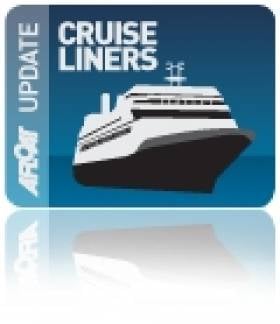Displaying items by tag: Princess
Princess Yachts On Course For 'Return To Profit' In 2015
Princess Yachts in the UK say that have 'strong order books' after confident performances at the Cannes and Southampton boat shows, and currently marking its 50th anniversary, figures published today show that Princess Yachts has successfully weathered one of the most difficult years in its history, significantly outperformed its competitors and is on target for profit in 2015.
Despite hurricane-force storms in February 2014 that brought chaos across South-West England and caused millions of pounds-worth of damage to facilities and stock at Princess's Plymouth manufacturing facility, a major programme of investment undertaken by the company will set a new standard for the industry with six new world-class models launched in the next half-year alone.
While other UK builders reported that adverse economic conditions badly affected their businesses, Princess's order book remained buoyant throughout the year.
Princess Yachts' results for the year to 31 December 2014 show a loss before tax of £11,343,000 on turnover of £239,630,000 equivalent to a margin of -4.7%. (2013 profits were £4,845,000 on turnover of £239,365,000 equivalent to a margin of 2.0%.)
This is considered by the board to have been an especially strong performance in light of the force majeure and its aftermath that affected the business for up to eight months. Indeed, the company was able to meet every order and even exceed its 2013 turnover with all manufacturing plans back on schedule by November 2014.
Meanwhile, expansion of both M Class and S Class ranges of boats is taking the Princess brand into new markets and sectors, and heralds a resumption of normative profitability in 2015, while even more emphatic growth is projected for 2016. The company is also continuing to work with its insurers towards final settlement of claims arising from the storms.
Chris Gates, Managing Director of Princess Yachts, said: "We are immensely proud of our team who worked extremely hard to meet and exceed customers' expectations during such a difficult period as we worked to recover from this natural disaster to ensure that we didn't lose a single piece of business.
"In parallel, our determination to step up investment in product development has both led the entire UK yacht-building industry and helped to future-proof the company by creating a wealth of new opportunities.
"We are now on track for a return to our customary position of profitability in 2015 and beyond, with a strong order book and the significant expansion of both M Class and S Class ranges of boats, which will further consolidate Princess Yachts' reputation as a world-leading yacht builder."
Commercial Motor Yacht Owner Pleads Guilty
The merchant vessel 'Sarah May III' is registered in the UK, certificated under the Code of Practice for the Safety of Small Commercial Vessels and licensed to carry no more than twelve passengers. On 6th June 2008 it carried more than 20 passengers across the Irish Sea from Strangford to Peel, Isle of Man.
The vessel, owned by local man Mr Grahame Stronge, was captured on CCTV at both Strangford and Peel as the passengers boarded the vessel.
View Larger Map
At the Magistrate's Court in Downpatrick on 7th Nov 2011 the owner pleaded guilty of failing to comply with the Code of Practice for the Safety of Small Commercial Vessels and to a breach of survey and certification regulations.
The owner was fined a total of £800
On summing up the Magistrate Brian Archer said:
"Good fortune, as much as there was no accident, the defendant knew he was overloaded and he was lucky there wasn't a tragedy, hopefully this won't happen again.
Captain Bill Bennett, Area Operations Manager (Survey and Inspection) Belfast for the MCA stated that:
"This was a serious breach of the Survey and Certification Regulations and should serve as a reminder to all operators of the dangers of carrying more passengers than the vessel is certificated and equipped to carry. All breaches of the Maritime Regulations are taken seriously by the Maritime and Coastguard Agency."
Cruise Line Business Worth €60m
There are many indirect economic and tourism benefits to Ireland from this sector, as well as the benefit of introducing Ireland to new markets and business opportunities. Such cruise visits also help to showcase Ireland's world class shore products, destinations and highlights all that Ireland has to offer visitors.
One of Ireland's advantages is the strategic and geographic spread of its numerous ports, many of which are in close proximity to world class tourism destinations.
Speaking at Seatrade Miami this week, the Chairman of Cruise Ireland, Mr Brendan Keating said "Cruise Ireland aims to promote the island of Ireland as an excellent cruising ground for cruise companies. With the total economic contribution of €60 million, we need to ensure that Ireland maintains this level of business and looks at methods of growing it in the future."
He continued; "Cruise Ireland is looking forward to the 2011 season with confidence. We expect to see further growth in ship calls and the continued establishment of Ireland as an important cruise liner destination. Marketing Cruise Ireland at Seatrade will hopefully encourage further cruise bookings to Ireland in 2012 and 2013."
Representatives from Cruise Ireland attended Seatrade Miami to promote the Island of Ireland as a cruise line tourism destination. This event is attended by over 10,000 delegates, cruise line operators, the world's leading cruise tourism destinations and 118 countries.
Each year, all of the international operators including Princess Cruises, Royal Caribbean, Cunard, Holland America Line and NCL visit Irish ports to access Ireland's world class destinations.
The 2011 season will kick off in early April with calls by the MV Queen Victoria to Cork, the MV Boudicca to Dublin and the MV Ocean Nova to Belfast































































